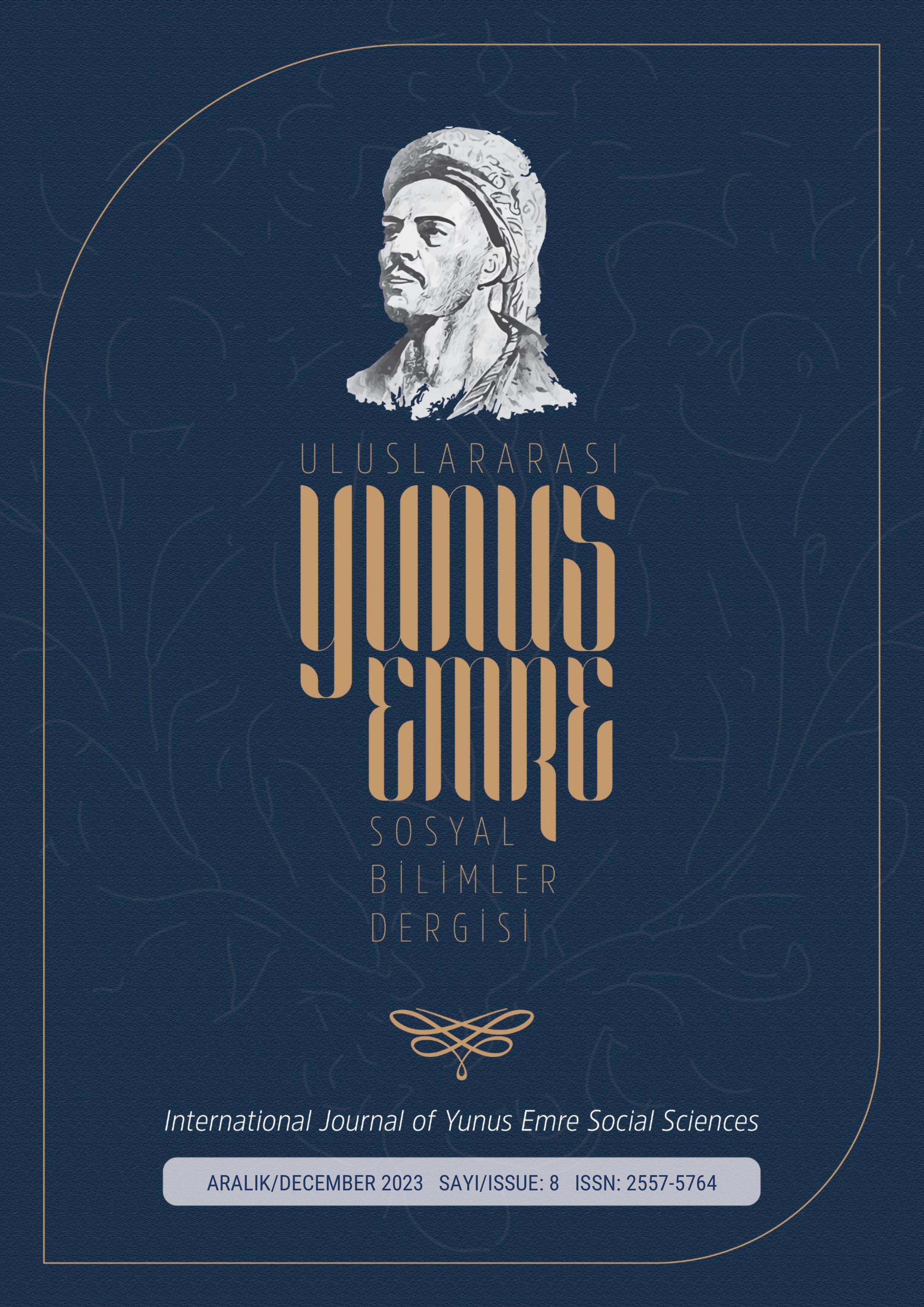Author :
Abstract
Kolektif bir fenomen olarak milli kimlik, bir milletin kendini tanımladığı ve konumlandırdığı anlam sınırlarıdır. Bu anlam sınırları, bir benlik inşası ile çizilir. Edebi eserler, bu benliğin yani milli kimliğin oluşmasında kurucu bir etkinliğe sahiptir ve bu hâliyle de edebiyat, bir varlık imajıdır. Kıbrıs’ın varoluş mücadelesine gerek bir mücahit gerek bir siyasetçi gerekse bir yazar olarak dâhil olan İsmail Bozkurt’un eserlerinde milli kimlik ve Türk kimliği, üzerinde titizlikle durulmuş bir konudur. Yazarın 2016 yılında yayımlanmış beşinci romanı olan Kaza, Ayhan ve Marulla isimli biri Türk biri Rum olan Kıbrıslı iki gencin düşmanlıkla başlayan aşklarını konu edinir ve bu aşk dekorunda milli kimlik; çatışma, yüzleşme ve uzlaşma üzerinde kurulur. Romanda “ben” değil “biz” bilinci ile hareket eden kahramanların duygusal dönüşümleri aktarılır ve sevgi, üstün güç konumunda kimliğe eklemlenir; geçmişin an üzerindeki etkileri, çeşitli bağlantılarla verilir ve bu gençler, birbirileri için kavramlardan ibaretken insan olma gerçeği ile karşılaşırlar. Yazar, coğrafi ortaklığın beraberinde getirdiği kültürel ortaklığı vurgulamaya çalıştığı eserinde bu ortaklığı iki millet için dolaysız, gerçek bir “tanışıklık”a bağlayarak bir farkındalık oluşturur.
“Hoşgörü, anlayış ve tahammül” sınırları içerisinde daha ölçülü çizilen Türk kimliğine karşılık Rum kimliği kışkırtıcılık, saldırganlık ve küstahlıkla öne çıkar. Kimlik çiziminde ideal “ben” olan Ayhan’ın söylemi ve algısı, ortaklık üzerinedir. Ötekilik ile kendilik arasındaki anlam sınırlarının belli kavramlarla çizildiği romanda Türk kimliği, üstün bir kimlik olmasının ötesinde kapsayıcı, kucaklayıcı, insancıl ve barışçıl bir imajla çizilir. Yazar, Türk ve Rum gencini Kıbrıs coğrafyasında gezdirirken ideolojik bir milliyetçilikten ziyade Akdeniz kültürünün dip akıntılarını da okura göstermeye çalışır ve tarih bilinci başta olmak üzere mekân ve dil bilinci gibi mili kimliğin kurucu değerlerini toplumsal belleğe kaydetmeye çabalar; okura birlikte insanca yaşanabileceğine dair bir varoluş olanağı sunar.
Biz de bu çalışmamızda Kaza romanında Türk kimliğinin ve bu kimliğin çizilmesini olanaklı hâle getiren Rum kimliğinin hangi kapsamda ne amaçla kurgulandığını açımlamaya çalışacak kurgusal evrende milli kimliğin belirdiği kavram çerçevesini değerlendirmeye gayret edeceğiz.
Keywords
Abstract
As a collective phenomenon, national identity is the boundaries of meaning within which a nation defines and locates itself. These boundaries of meaning are drawn through the construction of a self. Literary works have a constitutive activity in the formation of this self, that is, national identity, and as such, literature is an image of existence. In the works of İsmail Bozkurt, who was involved in the struggle for the existence of Cyprus as a mujahid, a politician and a writer, national identity and Turkish identity is a subject that has been meticulously emphasized. Kaza, the author’s fifth novel published in 2016, is about the love of two young Cypriots, Ayhan and Marulla, one Turkish and one Greek Cypriot, which starts with hostility, and in this love setting, national identity is built on conflict, confrontation and reconciliation. In the novel, the emotional transformations of the protagonists, who act with the consciousness of “us” rather than “me”, are conveyed and love is added to the identity in the position of superior power; the effects of the past on the present are given through various connections and these young people encounter the reality of being human while they are just concepts for each other. The author tries to emphasize the cultural commonality brought about by geographical commonality and creates an awareness by linking this commonality to a direct, real “acquaintance” for the two nations.
In contrast to the Turkish identity, which is drawn more restrained within the boundaries of “tolerance, understanding and tolerance”, the Greek identity stands out with provocativeness, aggression and arrogance. The discourse and perception of Ayhan, the ideal “I” in identity drawing, is based on partnership. In the novel, where the boundaries of meaning between otherness and self are drawn with certain concepts, Turkish identity is drawn with an inclusive, embracing, humane and peaceful image beyond being a superior identity. The author tries to show the reader the undercurrents of the Mediterranean culture rather than an ideological nationalism while taking the Turkish and Greek Cypriot youth around the geography of Cyprus, and endeavors to record the constitutive values of national identity such as historical consciousness, spatial and linguistic consciousness in the social memory; he offers the reader the possibility of an existence that can be lived together humanely.
In this study, we will try to explain in which context and for what purpose the Turkish identity and the Greek identity, which makes it possible to draw this identity, are constructed in the novel Kaza, and we will try to evaluate the conceptual framework in which national identity emerges in the fictional universe.





